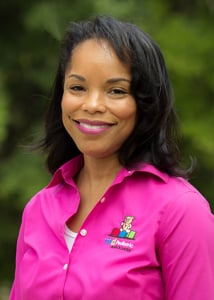Tag Archive for: Dr. Forbes
What is a Patient-Centered Medical Home and why does it matter? Dr. Forbes explains, detailing why the Patient-Centered Medical Home approach delivers better results for patients with behavioral health conditions like ADHD.
Hi, I’m Dr. Michelle Forbes. I am a pediatrician at MD Pediatrics, and I’d like to talk about behavioral health today.
At MD Pediatrics, we treat all of our patients, especially patients with behavioral health conditions, in the context of a Patient-Centered Medical Home.
Patient-Centered Medical Home
Patient-Centered Medical Home is a designation that we’re proud to have, and that means that we treat each patient as a whole person. So we see them as patient, a son, a daughter, a student, an athlete, a scout member…we like to look at the whole picture.
When it come to things like ADHD and making the diagnosis, we like to get input form several areas. We do an assessment in the office, and we’ll get assessment input from parents and teachers. We do that because input from different contexts informs our diagnosis and makes it more accurate.
After we make a diagnosis, we’ll prescribe any number of treatments, sometimes including medicine but often times bringing in a behavioral coach of sorts. We can bring in an ADD coach, psychologist, psychiatrist, or social worker as needed to help your child.
Once we make the diagnosis, we continue to get input from multiple sources so that we can evaluate. Are the coaches that we brought in appropriate? Is the medicine that we prescribed appropriate, and does it need to be fine tuned? Are accommodations at school working out so that your child can be successful?
In addition to getting information and feedback on a regular basis from multiple sources, we want to see your child for a checkup every year. That way we’re not only focused on the behavior health issues; we’re focused on the overall health and wellness of your child.
Thanks for listening. We at MD Pediatrics are really excited to be part of the team taking care of your child.
[vc_row][vc_column el_class=”blog-body”][vc_column_text]Do you have children? If so, how have they impacted your career?
I have two children: a daughter who is 24 and starting her second year of Medical School and a son, 25, who is interested in music. They were my first teachers in Pediatrics. I was fortunate to stay home with them for several years before returning to medical school. I was able experience their attainment of developmental milestones personally and up close. I was also very fortunate to have the opportunity to practice one of my passions with them daily: reading books and fostering language development.
What is a typical day at your office like?
A typical day at my office starts with a morning meeting with my nurse, Candy. We review the day’s schedule, review pertinent labs, x-rays, school forms and plan for each patient scheduled to come see. Being prepared helps me enjoy the time I have with each patient. During the day I see patients for well checks, acute/sick visits, ADD/ADHD and Depression visits. I find the behavioral health visits quite enjoyable and fulfilling.
What Challenges do you see for the future of medicine?
The challenge I foresee in the future of medicine is maintaining the relationships we build with families in spite of external policy, insurance and financial constraints. Encouragingly, medicine is shifting more towards emphasizing the value we provide to our families. Pediatricians have long been committed to serving our patients as we assess and monitor for growth, development and wellness. It is gratifying to have our efforts acknowledged as being valuable to society.
What’s something about you that patients might not know?
I love to cook! I am always on the lookout for new recipes, unusual ingredients and cooking groups. Feel free to bring a recipe next time you see me in the office!
[/vc_column_text][/vc_column][/vc_row]
Caring at every stage
Copyright © 2014 MD Pediatric Associates. MD Pedi, MD Pediatric Associates and the bear logo are trademarks of MD Pediatric Associates. All Rights reserved. Website designed and built by Hoyt Creative LLC
